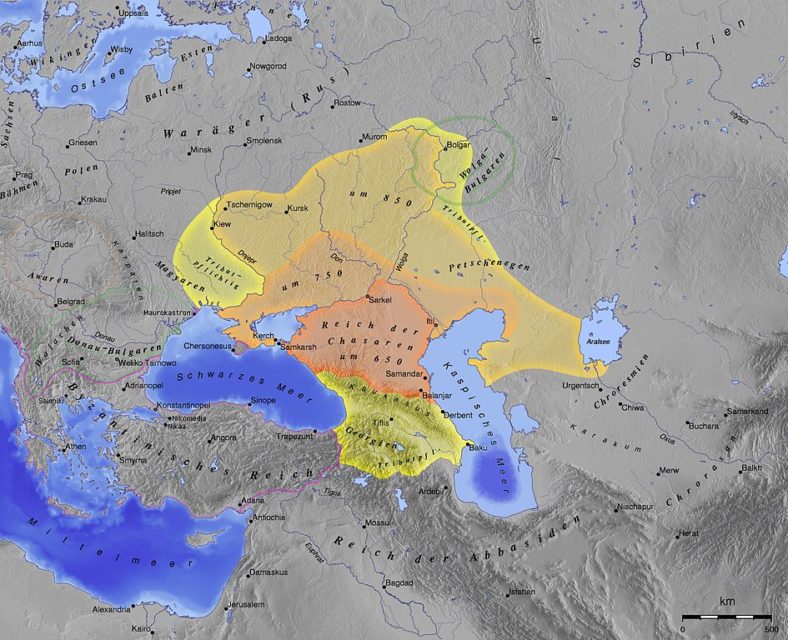I’d heard of the Khazar Khaganate occasionally, but didn’t know much about it until I read a useful summary by Lawrence W. Reed:
The list of extinct countries includes the better known ones like the USSR (aptly dubbed “the Evil Empire” by Ronald Reagan) and Yugoslavia, as well as hundreds of largely forgotten others like Majapahit, Assyria, Babylonia, Burgundy, and the Ottoman Empire. Far more countries are long gone, in fact, than the 195 on the map today. As a history lover, I’ve never yet discovered a country whose inhabitants’ experience was devoid of interesting facts and lessons.
Take Khazaria, for example. It lasted over 300 years (650 to 965 AD) and covered more territory than the combined Scandinavian nations of our time. It spanned the eastern half of modern-day Ukraine, the steppes of the Volga-Don region of present Russia, the entire Crimean Peninsula, and the northern Caucasus. Its southern portion took in most of the shorelines of three seas: the Black, the Caspian and the Aral.
It’s my thesis that for a country to be “successful” for a considerable period — success being defined loosely here as economically prosperous, politically stable, and militarily defensible — it must possess substantial TTD. That’s not a pronounceable acronym, unfortunately, but it stands for trade, tolerance and decentralization.
Each of these three criteria for success is worth volumes of discussion but here’s the nub of it: When economic freedom and private property exist, trade flourishes. And trade is what peaceful humans do to satisfy wants and improve material well-being. Choke it off and living standards plummet. Tolerance is a sign that people appreciate the benefits derived from diversity in personal choices. An intolerant people deprive themselves of what others can offer and waste time and resources fighting instead of collaborating. Decentralization preserves the rich identities of local communities and stymies the concentration of authority with its inevitable corruption. Power dispersed is power tamed.
So a successful country is one that can boast a lot of TTD. It encourages exchange, celebrates diversity and avoids top-down, political command-and-control. Almost every “failed state” in history did just the opposite by stifling commerce; stoking racial, ethnic or nationalistic hatred; and/or installing a dictatorship.
Khazaria, to its great credit, practiced remarkable measures of trade and tolerance and enough decentralization to prevent its government from sabotaging either one. In the end, it met its demise not from internal decay but from foreign assault.




